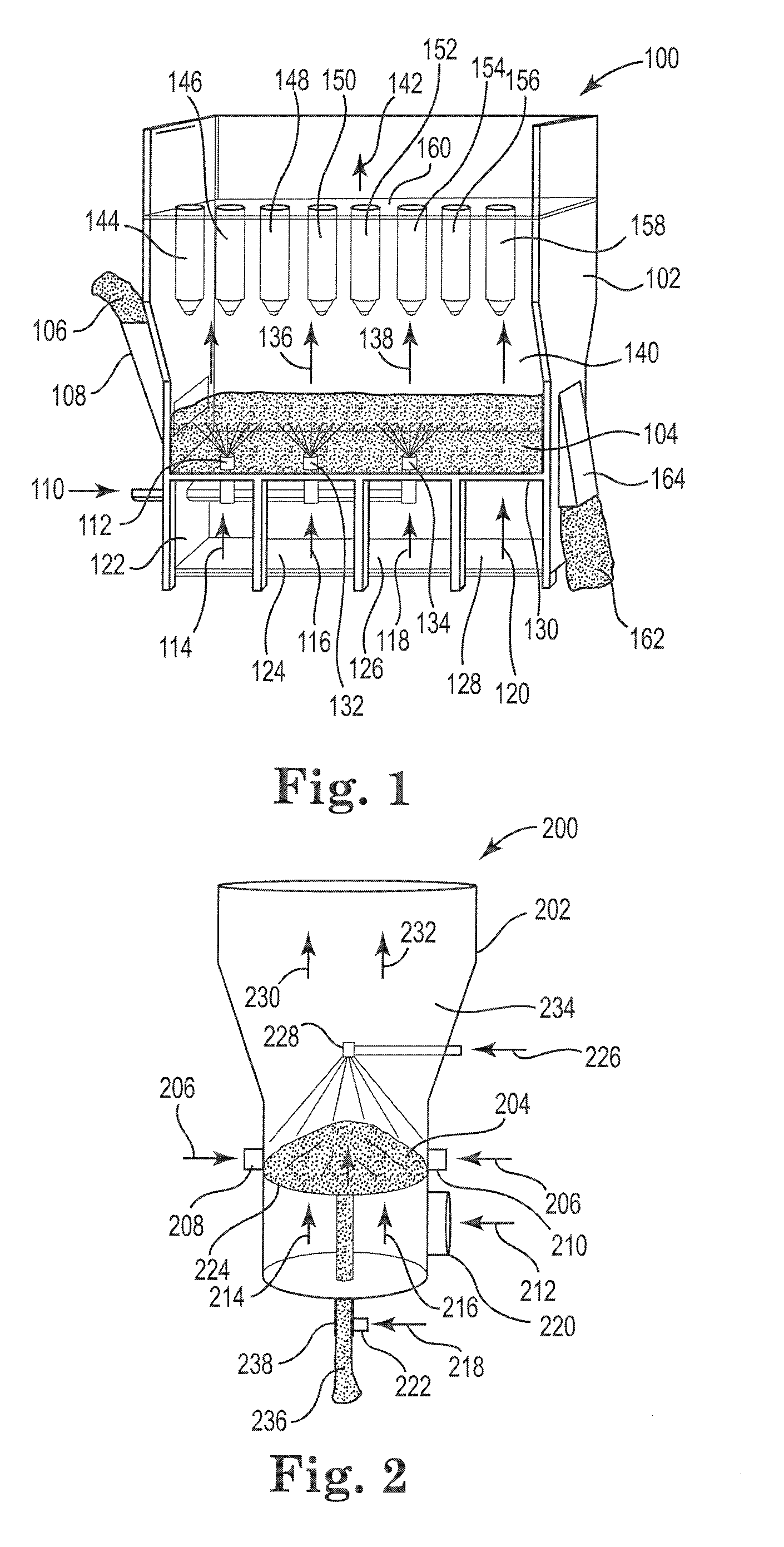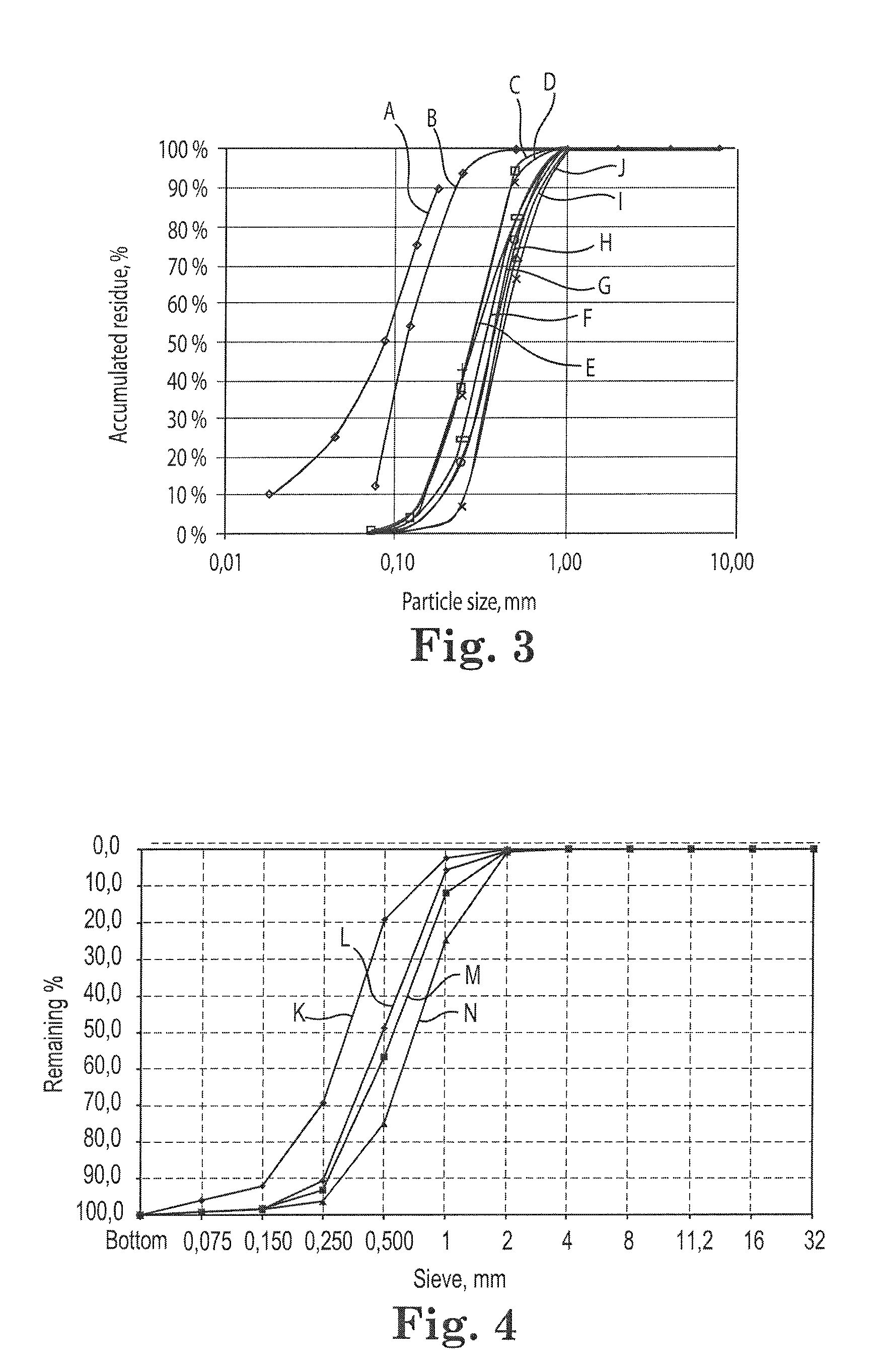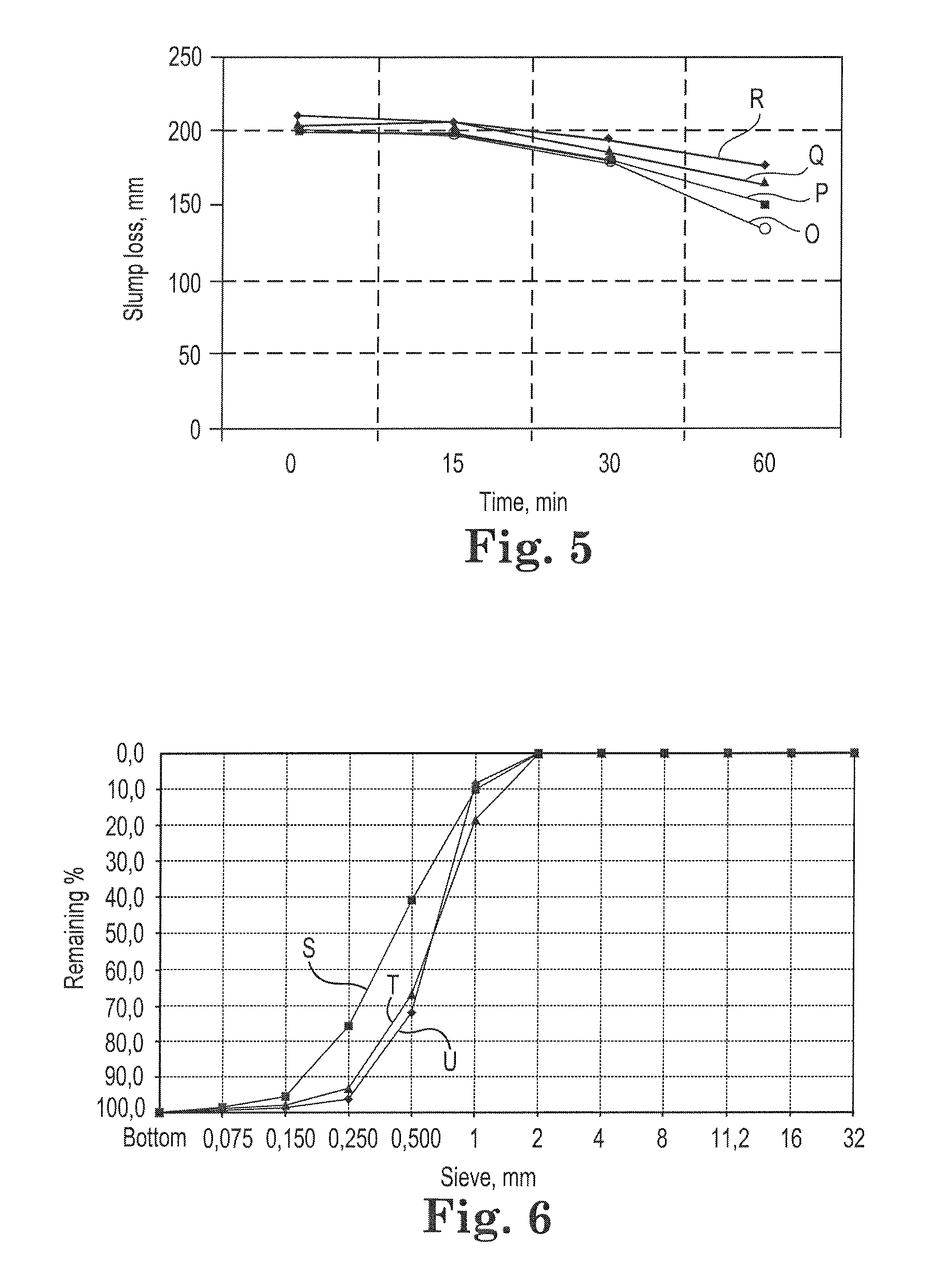Agglomerated particulate lignosulfonate
- Summary
- Abstract
- Description
- Claims
- Application Information
AI Technical Summary
Benefits of technology
Problems solved by technology
Method used
Image
Examples
example 1
Agglomerated Granules
[0040]A continuous feed GLATT™ fluidized bed agglomerator equipped with sprayheads for bottom spray liquid introduction was employed to make a series of lignosulfonate granules. The agglomerator was initially operated using spray-dried lignosulfonate microparticles (made using BORRESPERSE™ CA-SA lignosulfonate liquid from Borregaard LignoTech) as a seed feed, additional BORRESPERSE CA-SA lignosulfonate liquid in the bottom spray units as an agglomerating liquid feed, and process air heated to about 190° C. The seed and liquid feed streams were initially introduced in a 30:70 weight ratio. The agglomerator was operated at full capacity using a bed residence time of about 15-20 minutes, and at 50% capacity using a bed residence time of about 25-30 minutes. The microparticle feed could be switched off shortly after the start of each run and similar granules could be obtained by increasing the bed residence time to about 25-30 minutes for operation at full capacity ...
example 2
Cement Additives
[0045]Using the method of Example 1, lignosulfonate granules were prepared using BORRESPERSE™ CA calcium lignosulfonate from Borregaard LignoTech. FIG. 4 shows a particle size distribution curve (Curve K) for a comparison cement additive sold as TAMOL™ NH 7519 naphthalenesulphonic acid condensation product (from BASF) and three particle size distribution curves for fine (Curve L), medium (Curve M) and coarse (Curve N) granules made using BORRESPERSE CA calcium lignosulfonate. The horizontal axis in FIG. 4 shows the sieve opening in mm and is non-linear.
[0046]Concrete mixtures were prepared in 60 L batches using EN 197-1 CEM 142.5 R Portland cement (Standard Portland 30 from Embra, 350 kg / m3 density), graded aggregate sized in accordance with DIN EN 480-1 (0-8 mm 55 wt. %; 8-12 mm 22.5 wt. %; 12-16 mm 22.5 wt. %; 16 mm Dmax) and a 0.5 water:cement weight ratio, together with the FIG. 4 samples as cement additives at 0.28 to 0.3% solids by weight of cement (sbwc). A co...
example 3
Additional Cement Additives
[0047]Using the method of Example 1, lignosulfonate granules were prepared using BORRESPERSE™ NA sodium lignosulfonate from Borregaard LignoTech. FIG. 6 shows particle size distribution curves for the resulting fine (Curve S), medium (Curve T) and coarse (Curve U) granules. The horizontal axis in FIG. 6 shows the sieve opening in mm and is non-linear. Using the method of Example 2, the granules and a lignosulfonate powder made from spray-dried BORRESPERSE NA sodium lignosulfonate were used as cement additives at 0.30% sbwc, and evaluated for air content, density, set time, initial slump and slump loss. The dry additives were also evaluated for uncompacted and compacted bulk densities and wt. % dry matter. The results are shown below in Table B. Compared to the spray-dried lignosulfonate, the granulated lignosulfonates had slightly increased air content, lower initial slump, similar slump retention and similar set time. The spray-dried lignosulfonate powder...
PUM
| Property | Measurement | Unit |
|---|---|---|
| Temperature | aaaaa | aaaaa |
| Temperature | aaaaa | aaaaa |
| Size | aaaaa | aaaaa |
Abstract
Description
Claims
Application Information
 Login to View More
Login to View More - R&D
- Intellectual Property
- Life Sciences
- Materials
- Tech Scout
- Unparalleled Data Quality
- Higher Quality Content
- 60% Fewer Hallucinations
Browse by: Latest US Patents, China's latest patents, Technical Efficacy Thesaurus, Application Domain, Technology Topic, Popular Technical Reports.
© 2025 PatSnap. All rights reserved.Legal|Privacy policy|Modern Slavery Act Transparency Statement|Sitemap|About US| Contact US: help@patsnap.com



